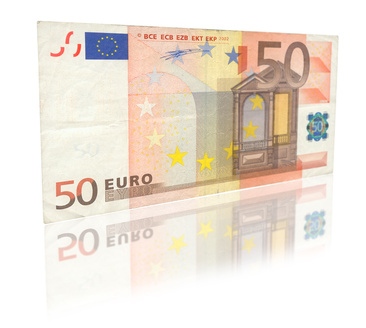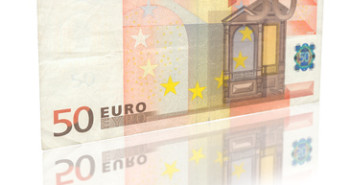No change is expected in the upcoming rate decision in the euro-zone. Trichet is likely to soften his stance on inflation. But how soft will he be? ECB Preview.
In the recent rate decision, Jean-Claude Trichet remained upbeat on inflation risks. He used the code words “very closely monitoring”, which mean that a rate hike isn’t like in the next meeting, but could appear afterwards. This is likely to change now
Lower inflation, lower growth
The president of the European Central Bank has already shown that he acknowledges the softer inflation threat. In a recent appearance in the European parliament, Trichet stated that inflation risks are under study.
Indeed, headline CPI has stabilized at a lower level of 2.5% percent (annually). Core inflation has also significantly fallen to 1.2%, showing that the “secondary effects” aren’t really visible.
So, the chance of Trichet using the code words “strong vigilance” to signal a move in October are virtually non-existent. October will be Trichet’s last decision as the president of the ECB, before he is replaced by Mario Draghi.
Also the chances of “monitoring very closely” are very low. Such a wording will boost the euro, given the current expectations.
So what will he say?
Trichet might move one notch lower, to “monitoring closely”. This means a wait and see mode, with no plans on any move in the next months. Such an outcome will be within expectations.
But can Trichet make a real shift? The ECB moved on the rates twice this year: in April and in July. The hikes came to curb inflation, which was mostly imported, and came at a very sensitive time to troubled countries that are in recession or hardly growing.
Without growth, tax collection is lower, spending is higher and the debt crisis just worsens. Add the austerity measures, and you have a one way road downwards.
We’ve already seen growth grinding to halt in France and almost halting in Germany, with a low growth rate of only 0.1%. These are the core countries, not the troubled ones.
The strong criticism of his moves didn’t really help. The ECB insisted on having “one needle in the compass”, inflation, and nothing else.
October rate cut?
But perhaps with the drop in both inflation and growth, Trichet can take one step further and hint about rate cut next month. The chances of a U-turn with an immediate rate cut are very low. Trichet doesn’t like to shock the markets.
What he can do is acknowledge the economic slowdown and hint that “policy might be accommodated to address the higher uncertainty” or some other wording. In such a case, the euro will likely slide.
Up to now, Trichet was very tough. But there still is a chance for him to make such a move. In November, Draghi, an Italian will replace him. Italians have an image of having a more loose monetary policy. It wouldn’t be good to leave the rate cut decision for the new president, but to allow him to build up a tougher image.
So, there is a chance that Trichet will cut the rates in his last decision and provide a signal now.
Debt crisis
The ECB prefers separating monetary policy from “non-standard measures”, such as bond buying. Trichet usually dodges questions about the bond buying scheme and sends reporters to look at the weekly publications by the ECB.
He will still likely be asked about it. There are high chances that he will point the finger to the governments and actually demand more austerity. Regarding quantitative easing, no change is likely. Trichet is strictly opposed to printing money – not draining out money used to buy bonds.
At the moment, the ECB still has the capacity to sterilize the bond buys. But for how long? And under what conditions? We have already seen that when Berlusconi backed from some of the austerity measures he promised (measures detailed by the ECB), Italian bond yields jumped – Trichet apparently punished him.
In any case, it is one of exciting events. Stay tuned for a live blog of the press conference, from Thursday at 12:30 GMT.
Further reading:
- EUR/USD forecast: For all the events and technical analysis.
- Experts forecast – FXstreet poll provides interesting views towards this event.
- Don’t Get Too Excited About the German Court’s Bailout Approval – Bailouts are very questionable.
